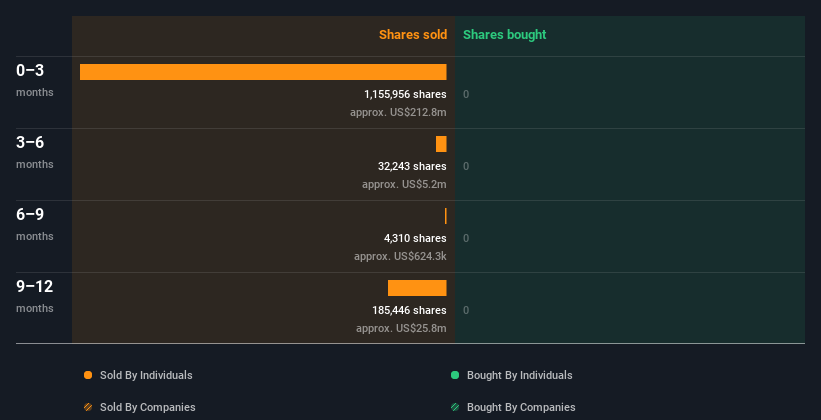JPMorgan Chase Insiders Sell US$228m Of Stock, Possibly Signalling Caution
The fact that multiple JPMorgan Chase & Co. (NYSE:JPM) insiders offloaded a considerable amount of shares over the past year could have raised some eyebrows amongst investors. When evaluating insider transactions, knowing whether insiders are buying versus if they selling is usually more beneficial, as the latter can be open to many interpretations. However, when multiple insiders sell stock over a specific duration, shareholders should take notice as that could possibly be a red flag.
While insider transactions are not the most important thing when it comes to long-term investing, logic dictates you should pay some attention to whether insiders are buying or selling shares.
View our latest analysis for JPMorgan Chase
The Last 12 Months Of Insider Transactions At JPMorgan Chase
The Chairman & CEO, James Dimon, made the biggest insider sale in the last 12 months. That single transaction was for US$150m worth of shares at a price of US$183 each. So it's clear an insider wanted to take some cash off the table, even below the current price of US$199. We generally consider it a negative if insiders have been selling, especially if they did so below the current price, because it implies that they considered a lower price to be reasonable. However, while insider selling is sometimes discouraging, it's only a weak signal. We note that the biggest single sale was only 9.6% of James Dimon's holding.
Insiders in JPMorgan Chase didn't buy any shares in the last year. You can see the insider transactions (by companies and individuals) over the last year depicted in the chart below. If you click on the chart, you can see all the individual transactions, including the share price, individual, and the date!
If you are like me, then you will not want to miss this free list of growing companies that insiders are buying.
JPMorgan Chase Insiders Are Selling The Stock
The last quarter saw substantial insider selling of JPMorgan Chase shares. In total, insiders dumped US$213m worth of shares in that time, and we didn't record any purchases whatsoever. Overall this makes us a bit cautious, but it's not the be all and end all.
Does JPMorgan Chase Boast High Insider Ownership?
For a common shareholder, it is worth checking how many shares are held by company insiders. Usually, the higher the insider ownership, the more likely it is that insiders will be incentivised to build the company for the long term. JPMorgan Chase insiders own 0.4% of the company, currently worth about US$2.1b based on the recent share price. Most shareholders would be happy to see this sort of insider ownership, since it suggests that management incentives are well aligned with other shareholders.
What Might The Insider Transactions At JPMorgan Chase Tell Us?
Insiders haven't bought JPMorgan Chase stock in the last three months, but there was some selling. Looking to the last twelve months, our data doesn't show any insider buying. But since JPMorgan Chase is profitable and growing, we're not too worried by this. It is good to see high insider ownership, but the insider selling leaves us cautious. So while it's helpful to know what insiders are doing in terms of buying or selling, it's also helpful to know the risks that a particular company is facing. For instance, we've identified 2 warning signs for JPMorgan Chase (1 is a bit unpleasant) you should be aware of.
If you would prefer to check out another company -- one with potentially superior financials -- then do not miss this free list of interesting companies, that have HIGH return on equity and low debt.
For the purposes of this article, insiders are those individuals who report their transactions to the relevant regulatory body. We currently account for open market transactions and private dispositions of direct interests only, but not derivative transactions or indirect interests.
Have feedback on this article? Concerned about the content? Get in touch with us directly. Alternatively, email editorial-team (at) simplywallst.com.
This article by Simply Wall St is general in nature. We provide commentary based on historical data and analyst forecasts only using an unbiased methodology and our articles are not intended to be financial advice. It does not constitute a recommendation to buy or sell any stock, and does not take account of your objectives, or your financial situation. We aim to bring you long-term focused analysis driven by fundamental data. Note that our analysis may not factor in the latest price-sensitive company announcements or qualitative material. Simply Wall St has no position in any stocks mentioned.

 Yahoo Finance
Yahoo Finance 
